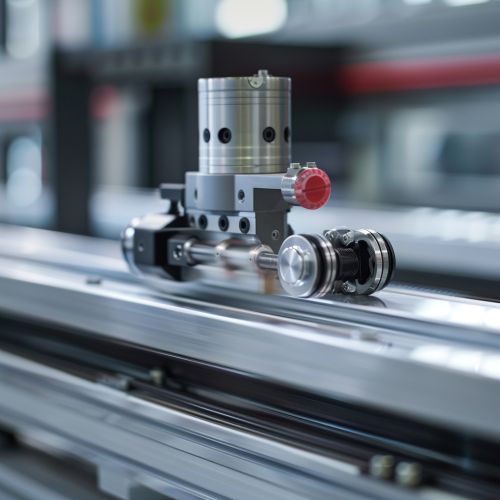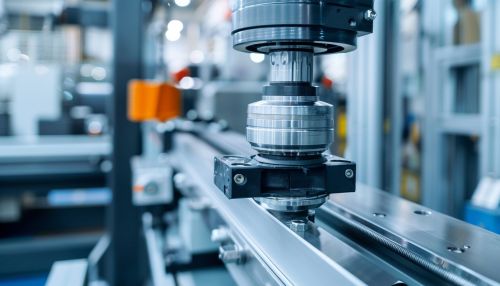Actuator
Overview
An Actuator is a type of device or mechanism that moves or controls a system. It is operated by a source of energy, typically electric current, hydraulic fluid pressure, or pneumatic pressure, and converts that energy into motion. Actuators are the key components in a wide range of industrial applications, ranging from industrial machinery to consumer electronics.
Types of Actuators
There are several types of actuators, each with its own specific uses and advantages. The most common types include:
Electric Actuators
Electric Actuators are devices that convert electrical energy into mechanical torque. The electrical energy is used to produce motion in the actuator, which can then be used to control a system or process. Electric actuators are commonly used in industrial applications where precise control is required.
Hydraulic Actuators
Hydraulic Actuators use the pressure of a liquid to cause motion. They are typically used in heavy-duty applications where a large amount of force is required, such as in construction equipment or industrial machinery.
Pneumatic Actuators
Pneumatic Actuators operate on the principle of converting energy stored in compressed gases into mechanical energy. They are commonly used in applications where quick, repetitive movement is required, such as in manufacturing processes.
Thermal or Shape Memory Actuators
Thermal or Shape Memory Actuators use materials like shape memory alloys that change shape or size when heated. These actuators are often used in applications where space is limited, such as in medical devices or micro-robots.


Working Principle
The working principle of an actuator depends on its type. However, all actuators work on the basic principle of converting one form of energy into mechanical motion. This is typically achieved through a series of stages, which may include an energy source, a control signal, and a mechanical system.
Applications
Actuators are used in a wide range of applications, including:
- Industrial machinery: Actuators are often used to control the movement of machinery in industries such as manufacturing, construction, and mining. - Robotics: In Robotics, actuators are used to control the movement of robots, allowing them to perform tasks such as lifting, moving, and manipulating objects. - Consumer electronics: Actuators are used in many consumer electronics, such as printers, cameras, and disk drives, to control various functions. - Medical devices: In the medical field, actuators are used in devices such as prosthetics, surgical instruments, and drug delivery systems.
Future Trends
The future of actuators lies in the development of more efficient, compact, and precise devices. Advances in materials science, electronics, and control systems are expected to drive the development of new types of actuators, with applications in fields such as nanotechnology, biotechnology, and robotics.
See Also
- Hydraulics - Pneumatics - Robotics - Control Systems
